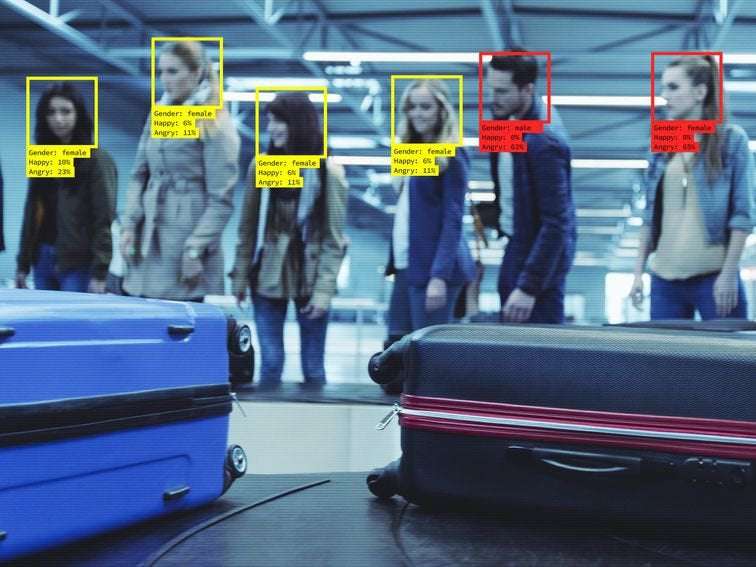Boston joined cities like San Francisco, Oakland, California, and Cambridge, Massachusetts, on Wednesday in passing a vote to ban facial recognition technology for municipal use. It's the second largest city in the US to ban facial recognition, after San Francisco enacted its ban in May 2019.
The ordinance passed unanimously and will prevent the capital city from using facial recognition technology or obtaining software for conducting surveillance using the technology.
"Boston should not be using racially discriminatory technology and technology that threatens our basic rights," City Councilor Michelle Wu said at the hearing on Wednesday.
The ordinance comes with exceptions, like allowing city employees to use facial recognition for authentication purposes such as unlocking their own devices. City officials can also use facial recognition technology for automatically redacting faces in images. But they can't use it for identifying people.
The vote came from City Councilor Ricardo Arroyo, who sponsored the bill with Wu. The decision on Wednesday makes Boston the largest city on the East Coast to ban facial recognition.
Overall, it prevents the city of Boston from using facial recognition or obtaining information from a facial recognition system, or hiring a third party that can use facial recognition on the city's behalf.
The ban comes after nationwide calls for police reform and limits on surveillance technology like facial recognition. Cities like New York have passed legislation to disclose the NYPD's surveillance tools, while companies like Amazon and IBM have announced moratoriums on selling facial recognition to police departments.
Facial recognition has been widely criticized after researchers exposed the technology's racial and gender bias. Studies highlight how the algorithms are much more likely to misidentify people of color and women than white men, raising concerns on how governments are using the technology.
"Surveilling our population at large and doing facial identification is not necessarily the way we want to go in a free society," City Councilor Liz Breadon said at the hearing.
The American Civil Liberties Union on Wednesday announced a lawsuit in Detroit after police wrongfully arrested Robert Williams, a Black man misidentified by the city's facial recognition software. It's the first known case of an arrest from a facial recognition mismatch, but privacy advocates worry it's only the beginning if police continue to use the technology.
"This is a crucial victory for our privacy rights and for people like Robert Williams, who have been arrested for crimes they did not commit because of a technology law enforcement shouldn't be using," said Carol Rose, executive director of the ACLU of Massachusetts."Lawmakers nationwide should follow suit and immediately stop law enforcement use of this technology. This surveillance technology is dangerous when right, and dangerous when wrong."
Boston's police department doesn't currently use facial recognition, but Wednesday's vote ensures that it can't use the technology in the near future.
"Facial recognition is inherently dangerous and inherently oppressive. It cannot be reformed or regulated. It must be abolished," said Evan Greer, deputy director of the digital rights group Fight for the Future. "Boston just became the latest major city to stop the use of this extraordinary and toxic surveillance technology. Every other city should follow suit."
At a Boston City Council hearing on June 9, the city's Police Commissioner William Gross said he's not interested in facial recognition while the technology is still racially biased.
Violating the ordinance can result in potential suspension or termination, according to the regulations.

THORSEIDON on June 25th, 2020 at 14:19 UTC »
Wow... If Boston feels this way even after the Tsarnaev brothers, I think that says something.
Popular-Uprising- on June 25th, 2020 at 13:56 UTC »
This needs to be all facial recognition on public property. Otherwise, private companies will just gather the data and sell it to the government or other private companies. If private companies want to do this, they need to confine the technology to people who enter their private property only.
HanksomeMan on June 25th, 2020 at 12:57 UTC »
This needs to be nationwide.